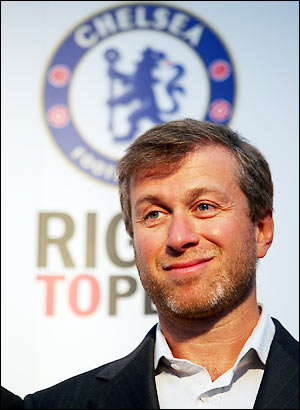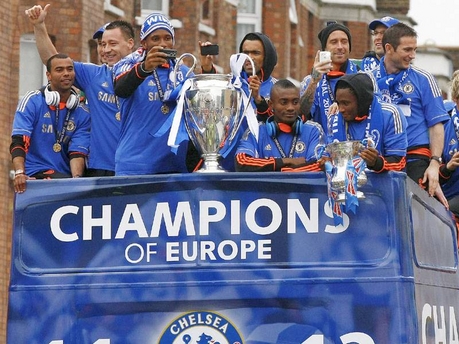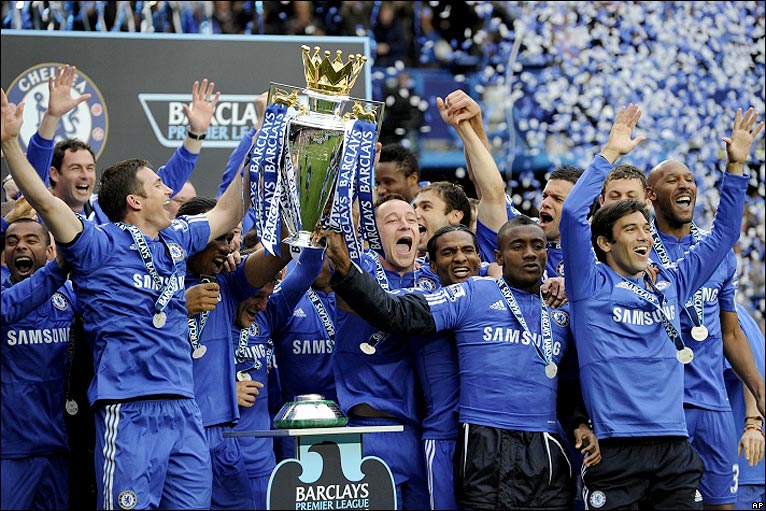 With the sacking of Roberto Di Matteo and the appointment of Rafael Benitez, Chelsea have reached a rather unwanted landmark; their tenth manager in under ten years. The trigger happy owner, Roman Abramovich, has come under severe criticism for his short temper with managers.
With the sacking of Roberto Di Matteo and the appointment of Rafael Benitez, Chelsea have reached a rather unwanted landmark; their tenth manager in under ten years. The trigger happy owner, Roman Abramovich, has come under severe criticism for his short temper with managers.
However, while the critics may say he is bad for the club there are some who argue back, saying that Chelsea would be nowhere without him. They have a point; it was reported that Chelsea were heading towards administration and liquidation in 2002/3 if they didn’t qualify for the Champions League, such were their financial troubles.
This is of course a distant memory now, picturing Chelsea without money is like imagining Tony Pulis without a cap or Sir Alex Ferguson without his chewing gum. So could there be a defence of Abramovich, could he be doing good for Chelsea? I will try and investigate, using statistics while posing a few questions along the way.
Probably the most common criticism of Chelsea now is that they are an unstable club, the constant change of managers resulting in the club being insecure and without a proper direction or purpose. Think of Chelsea as a creaky building compared to the solid structure that is Manchester United. In the eyes many (admittedly I may add myself to that category) Manchester United and Chelsea are polar opposites in terms of ideology and stability, because of this I will be making regular comparisons between the two.
I would like to raise the issue of just how important stability is. Sure, it’s apparently crucial to success but if you’re successful without being stable; does it matter? After all, Chelsea have won more major trophies than Manchester United in the Abramovich era (10 compared to 8). I must briefly add that I don’t consider the one-off games (Community Shield, Super Cup, and Club World Cup) to be major trophies and have excluded them for that reason. So it may seem that Chelsea’s unstable approach has been more successful than Manchester United’s stability under Sir Alex Ferguson.

This statistic may be offset by the transfer activity of the two clubs. It’s no secret that Chelsea have spent huge amounts of money; £276,300,000 more than Manchester United since Abramovich bought the club in 2003. Chelsea’s spend of £652,550,000 has resulted in 10 trophies, a spend-per-trophy of £65,255,000. By comparison, Manchester United’s spend-per-trophy has been £45,906,250, having spent £376,250,000 and winning 8 trophies. So United win on this statistic, and it’s easy to explain why. Under the single manager, United have maintained the same style and ideology over this period of time which means that transfers are most commonly made to replace an outgoing player. By contrast, when a new manager comes in he brings in a new set of ideas and a new style of play. Chelsea have fallen foul to this, a new manager always wants to bring his own players in and requires financial backing to fund this. So therefore it can be said that Chelsea have spent more than United because of their instability and the constant changing of managers. But does this make United a better team? They have still won fewer trophies than Chelsea in this period, so therefore greater stability does not necessarily equal greater success.
Bringing in another club as a comparison, I would like to look at Real Madrid’s statistics over the same period of time; they are a club with a reputation for hiring and firing managers at a quick rate and have also had the same number of managers as Chelsea over this period. They have, astonishingly, won only four major trophies since 2003/4 while spending £429,120,000. This means they have a colossal spend-per-trophy figure of £107,280,000. This shows two things; firstly that instability can have a negative effect, they have spent more than United who have won twice the number of trophies. It also shows how impressive Chelsea’s success has been; if another club with managerial instability can do so poorly by comparison. This, for me, suggests that the Abramovich approach may be working for Chelsea, against all the odds.
So how can this be? It seems strange to suggest that the Chelsea players may react positively to a constant change of manager. However pundits and football fans talk about the ‘honeymoon period’ that occurs when a new manager takes charge; a period when all players are trying to prove to their new boss that they deserve to be in the team. It seems absurd to think that constantly changing managers and thus having multiple ‘honeymoon periods’ is beneficial for a team. The explanation for Chelsea may be slightly more sinister. It may be that the manager is not the most influential figure in the dressing room and thus his departure is not as important as it may be for other clubs. However you could again ask if this really is a bad thing, considering the success that Chelsea have had.

Now we could actually ask if sticking with a manager is the right way forward. In my opinion, the ideology of having a manager who can build a team over a period of years is similar to the ideology of playing attractive, passing football; that is to say it is an ideal situation but not essential for success. Abramovich was criticised for sacking Andre Villas-Boas but they won the Champions League and FA Cup that same year; Chelsea didn’t look like winning either with Villas-Boas in charge. While United have won trophy after trophy with the same manager, Abramovich has shown that there is another way to win; this is ironically similar to Chelsea winning the Champions League by, in a nutshell, defending.
While I will always defend the belief that there is more than one way to win I wouldn’t attribute the success of Chelsea purely to the revolving door in the manager’s office. There is no doubt that Chelsea’s success is primarily due to the spending by the owner. It could be possible that in the short term with a large pot of cash, changing managers is the quickest way to success; however the statistics for Real Madrid show that it is not guaranteed. With Manchester United’s spend-per-trophy being smaller than these two clubs it seems that sticking with a manager is the best option for long term success with a limited budget.
Follow Myself and Soccerisma on Twitter: FanaticNeutral and Soccerisma
 Premier League
Premier League La Liga
La Liga Bundesliga
Bundesliga Serie A
Serie A Ligue 1
Ligue 1 UCL
UCL



